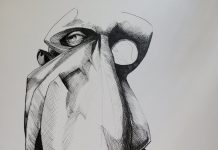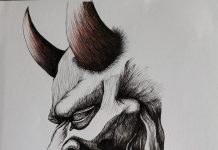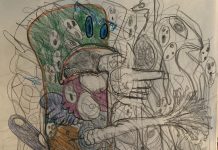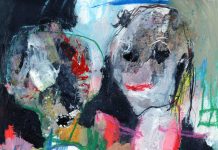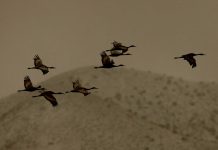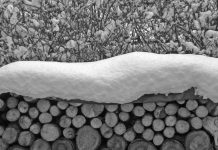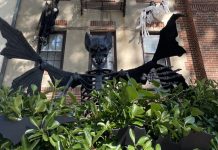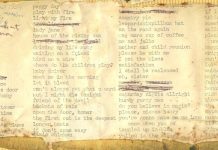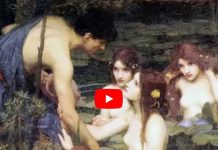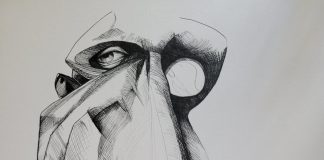There is no I nor you
nor he nor she
but only we
gleaning one another by our vining wrists,
our twining roots and tangling twigs—
an oak and a linden tree.
We’ll tell a tale
of who we were before,
a pair of wintered spouses,
loving-bound and old,
who greeted two lost and fugitive gods at our door
and shared with them our roof and walls.
Such silly gods, truth be told!
They didn’t think we knew their names,
nor why they knocked so sharp
at all the neighbors’ houses,
grailing in vain for food and drink,
for hearth and heart
and charitable chance,
until they found us at home.
But we knew even then, we two,
all gods are wandering mendicants,
and every beggar is a god.
For don’t you know
Olympus is no mountain?
It is a road of briars and stone,
of fire and snow—
a rough and surly street
trod down by blistering feet.
We served those road-famished gods
from our meager means
through sleights of magic borne from lack:
new wine and old
pouring without cease
in waxen beechwood cups;
fresh-laid eggs and creamy cheese;
olives green and black
(those salty cherries of Athena);
smoke-cured pork, a chine
boiled soft with cabbage;
plums autumn-bottled in the silt of wine;
endives, radishes, and chives,
grapes boldly chosen from the vine,
and wrinkled dates to mock our wizened brows—
such delicacies as only poverty allows,
paucity ever plenished into plenty
on and on
and more and more
until our gods gasped awestruck
at such an endless store.
For don’t you know
the gods can work no wonders here on earth?
But mortal kindness knows no scarcity,
nor goodwill any dearth,
and dying hands make all things grow.
Despised we were in life,
more so in death,
which came one merciful December.
Shunned by all,
we shared a last gold-glowing breath
clasped in one another’s thrall,
perpetual husband, ceaseless wife.
Hardly were we cold,
and well before we turned to stink,
our neighbors crammed our carcasses
in burlap sacks
and planted them away from peopled tracks,
from any mortal link,
unmarked and alone
where no one would remember.
But by and by an acorn and a downy drupe
dropped randomly upon our beds
and there took root unknown,
their tendrils licking in the ground,
hungry and athirst,
harvesting our wormy flesh and sinew,
our rotting eyes and ears and bone,
until atop each mound there burst
a shoot of vibrant green.
For don’t you know
putridity is life itself,
a banquet of the loam,
and dying hands make all things grow?
The gods we tended to that day
never reached home again,
or so the stories say.
And those good souls who hated us—
hated us into the very ground—
all perished,
oh,
some thousand years ago
or so.
The fen they lived in—
the swamp of their fetid wealth,
the stagnant mammon they so cherished
while scoffing at despair and need,
crept up to their noses by stealth
and drowned them unawares,
leaving not a trace of who they were—
nothing but an echoed hush.
We scarce remember them ourselves,
our centuries since have been so lush.
For don’t you know
what’s unfurled
furls ever back upon itself
and then unfurls again,
casting shadows on a cloudless sky
and strewing petals on a barren world?
Within our grafted torsos,
helix-wound,
concentric memories form rings
where tales are found.
Tell them patiently and slow,
those tales of sundry wondrous things—
of storm and calm,
of drought and rain,
of Druids plucking mistletoe
and lovers wedded in our shade.
Oak’s drooping catkin flowers,
like fingers pendulous with pollen,
stroke linden blossoms
in gold hermaphroditic bundles fallen.
From all these,
ever and again, the bees
yield honeycomb that glistens
as if from newly fallen rain.
Their living wings
and restless feet
make things
that grow.
____________________________________________________________________
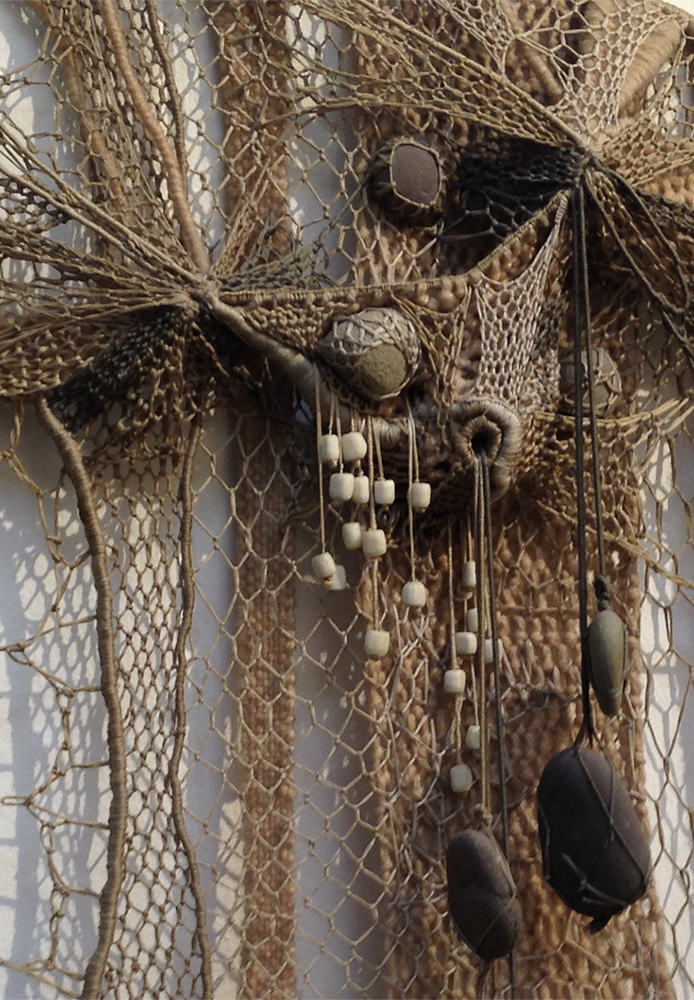
image: “Entwining,” from a fiber art piece by Pat Perrin
________________________________________________________________________




